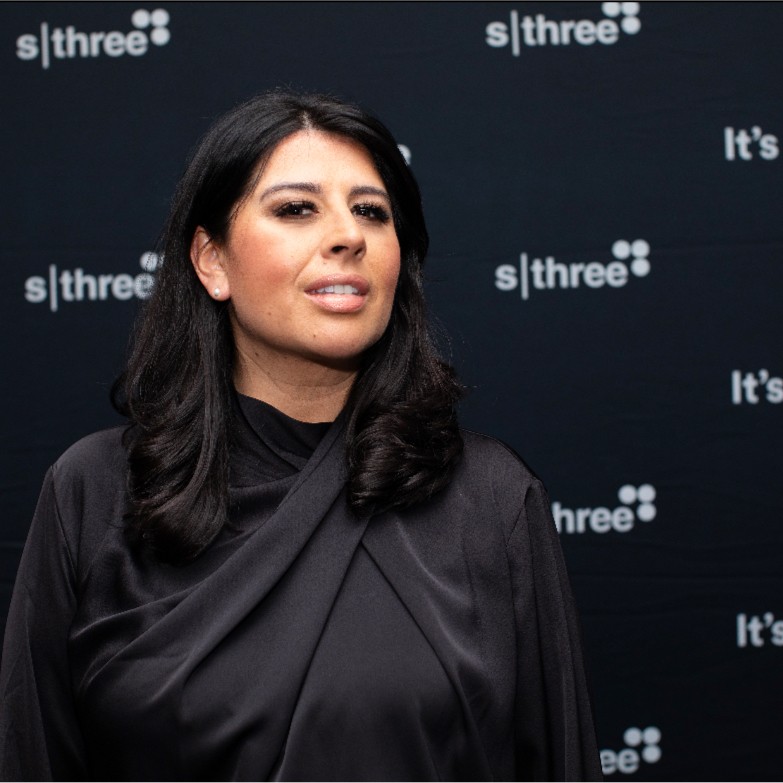Computer Futures exclusively shares top 10 job interview tips and strategies for females applying for technology roles.
As someone who oversees the placement of skilled female job candidates into tech roles, I’ve seen firsthand how the IT industry is evolving to address gender bias and foster a more inclusive environment, including at interview stage.
Technology job interviews: warning - they still contain gender bias
However, despite the positive changes, women still face unique challenges when breaking into and thriving in tech roles. Ranging from unconscious bias in interviews and during the hiring process more widely, to the lack of mentorship and representation in the tech workforce, the journey can be daunting.
Here, exclusively for Women In Tech, is my guide to help women excel in tech interviews and navigate this shifting landscape, writes Emily Bray, associate director at IT recruitment agency Computer Futures.
The job interview as a female techie: gender shouldn't matter
I believe that by empowering women in tech with the knowledge and tools that they need, we can hopefully contribute to a more equitable IT industry, where talent and potential are recognised and celebrated, regardless of gender.
And that starts at the interview, if not before.
10 job interview tips for women in tech
1. Prepare for interview
- Research the employer and their organisation
Culture and Values: Understand the organisation’s mission and diversity stance. Employers prioritising diversity often excel in team dynamics and innovation.
Projects: Familiarise yourself with the employer’s recent projects, programmes, products or services, so you can tailor your responses to incoming questions.
Team Dynamics: Learn about the team you’ll join, noting women in leadership roles as a sign of inclusivity.
- Master the role requirements
Job Description: Highlight key responsibilities and required skills. Aligning your experience with the stated job requirements is crucial.
Relevant Examples: Prepare to discuss projects showcasing necessary skills.
- Tailor your CV and online presence
Technical Expertise: Highlight your relevant skills, certifications, and achievements.
Leadership and Collaboration: Demonstrate your teamwork, leadership, and problem-solving abilities.
Professional Profiles: Ensure your LinkedIn profile and other portfolios are up-to-date.
- Address gender bias
Awareness: Recognise potential biases in a way that keeps you composed and able to redirect conversations effectively.
Professionalism: Steer inappropriate questions back to your skills and qualifications.
2. Understand interview formats
- Technical interviews
Practice Coding and Algorithms: Use platforms like HackerRank and LeetCode. Consistent practice builds confidence.
System Design: Be ready to design systems or explain concepts.
Think Aloud: Articulate your thought process to demonstrate problem-solving skills.
- Behavioural interviews
Experience-Based Questions: When responding to interview questions, use the ‘STAR’ method (Situation, Task, Action, Result).
Teamwork and Conflict Resolution: Have examples showcasing collaboration and handling challenges. Focus on what you, as an individual, did.
Adaptability: Share instances and real-world examples of adapting to new technologies or recovering from setbacks.
- Cultural fit interviews
Values Alignment: Express how your values align with the organisation’s mission.
Diversity Contribution: Discuss your involvement in diversity initiatives.
Tech Enthusiasm: Convey your passion for the field and continuous learning.
3. Common interview questions women in tech face
Technical questions:
Q: Describe a challenging technical problem you’ve solved.
Answer tip: Focus on complexity and your approach.
Q: How do you ensure the quality of your code?
Answer tip: Mention code reviews, testing, and standards.
Q: Explain a project where you used [specific technology].
Answer tip: Detail your role and the project’s impact.
Behavioural questions:
Q: Tell me about a time you worked in a diverse team.
Answer tip: Highlight collaboration and success from different perspectives.
Q: How do you handle tight deadlines or multiple priorities?
Answer tip: Discuss time management and task prioritisation.
Cultural fit questions:
Q: What kind of work environment helps you thrive?
Answer tip: Be honest about your productive environments.
Q: How do you stay updated with technological advancements?
Answer tip: Mention industry blogs, newsletters, updates, forums, courses, or professional groups.
4. Overcome gender-specific questions in interview
- Make sure you address any gender bias
Achieve this by using professional redirection. In other words, respond to biased questions professionally.
Example: “I am fully committed to my professional responsibilities and manage my time effectively.”
- Make sure you own your achievements
Achieve this by displaying confidence.
Put another way, articulate your accomplishments clearly, and don’t minimise your achievements.
- Make sure you quantify success
Achieve this by citing metrics to demonstrate your impact.
- Make sure you combat Imposter Syndrome
Achieve this with positive affirmations. In practice, this means reminding yourself of your skills, qualifications and successes.
- Post-interview, make sure you leverage support networks
Achieve this by engaging with communities or mentors for encouragement.

5. Engage with the interviewer (by asking these four questions)
Ask insightful questions to engage with the interviewer.
Your aim should be to leave the interview feeling like it was a good conversation for the interviewer, not just you, the interviewee!
Key questions to ask when asked the age-old, ‘Have you got any questions for me?’ include:
- How does the organisation/ company support professional development and growth?
- How would you describe the team’s dynamic and collaboration style?
- What are the team’s immediate challenges?
- What initiatives promote diversity and inclusion?
Asking thoughtful questions like these four shows you’re proactive and genuinely interested in the role and in the interviewer as an employer.
6. Post-interview best practices
- Follow-up
Thank-You Email: Send a personalised email expressing gratitude.
Reiterate Interest: Mention what excited you about the role.
- Reflect and Learn
Self-Assessment: Immediately after the interview, evaluate your strengths and areas for improvement.
Continuous Learning: Use challenging questions as learning opportunities. How would you have answered in a way which incorporates the ‘STAR’ methodology more clearly?
7. Negotiation and beyond
- Salary and Benefits
Market Research: Know industry standards and rates for the role.
Value Articulation: Justify salary /rate expectations based on your experience and skills.
Negotiation Advice: Women often hesitate to negotiate.
Remember, it’s standard practice at a technology job interview.
Be clear about your expectations and don’t be afraid to negotiate.
- Assessing the Offer
Beyond Salary: Consider growth opportunities, company culture, and work-life balance.
Trust your Instincts: Choose an environment where you feel valued, and can see yourself happy and making a positive difference.
8. Before interviewing as a woman in tech: don't forget your agent
The journey through tech interviews can be demanding, and this is particularly true for women in tech.
But with preparation, confidence and ideally — insights from your recruitment agency – tech job interviews are the first stage of the face-to-face hiring process where you can truly out and succeed.
Remember, your agent can act as an insider, guiding you on specific attributes that the employer or end-client is seeking. Make sure you get your recruiter’s insights before heading into the interview.
9. Know your government-backed worth
The tech industry is evolving, and women like you are at the forefront of this change. It’s a change that the government is behind, too.
Believe in your abilities and don’t be afraid to showcase them. The technology industry, including technology departments within organisations, needs diverse talent to drive innovation.
10. No interview is a one-way street
My final tip? Each interview you undertake as a woman in tech is not just an evaluation of your skills but also an opportunity to assess if the employer aligns with your own goals and values as a female technologist. Stay confident, be authentic, and let your expertise shine.

Emily Bray
Emily Bray is an experienced recruitment leader with a 19-year career. She currently leads teams of consultants as an Associate Director for Computer Futures, part of SThree, in London. Recognised as a purpose-driven leader, Emily has consistently delivered exceptional performance. At Computer Futures, Emily’s focus includes driving cloud transformation, ensuring robust IT security, fostering development, streamlining DevOps practices, and enhancing tech infrastructure teams.
In addition to her operational role, Emily is actively engaged in DEI initiatives, driven by a passion for making a positive impact both internally and externally.




